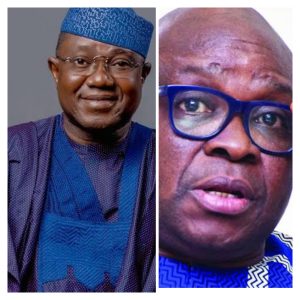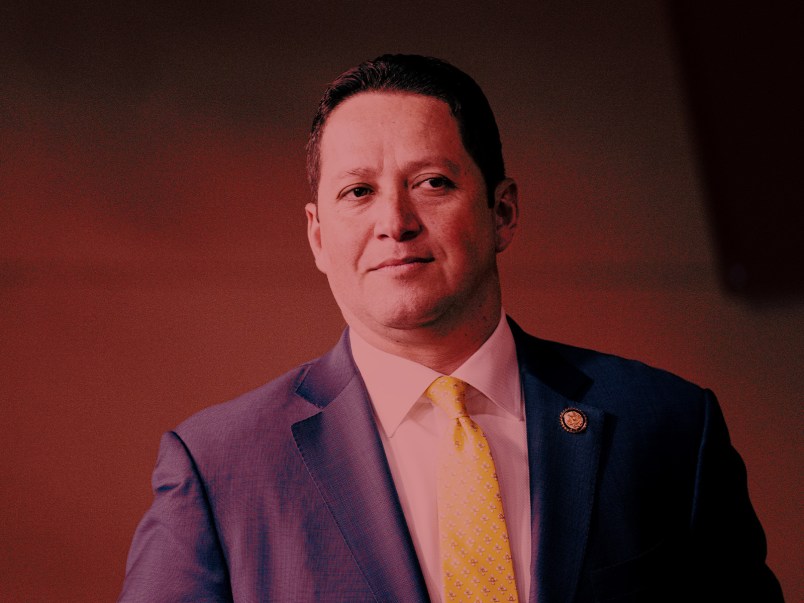
By Ogan Barikpoa
When Vice Admiral Ibok-Ete Ibas (rtd) assumed office as the Sole Administrator of Rivers State on 18 March 2025, the state was teetering on the edge of administrative collapse. The bitter political feud between former Governor Nyesom Wike and his successor, Siminalayi Fubara, had paralysed governance.
The State House of Assembly was mired in acrimony. Ministries were dormant. Civil servants were unpaid. Local government councils had become rudderless. Public trust was almost non-existent.
The situation was so dire that President Bola Ahmed Tinubu, invoking constitutional powers, declared a state of emergency and appointed Ibas to steer the state out of stormy waters. Many questioned the move. Others feared the worst. But barely three months later, the results speak for themselves. Ibas has turned chaos into coordination, and Rivers into a state back on its feet.
Today, the question has shifted from “Why was he appointed?” to “Where would Rivers be today if he hadn’t been?” The answer lies in the silent, effective restructuring that has taken place under his watch. With no political base of his own and no appetite for drama, Ibas entered with a singular objective: stabilise the system.
Upon assumption of office, Ibas inherited a broken structure. The ministries were disengaged, budget records incomplete, and oversight at the local government level virtually non-existent. His first act was to demand full operational and financial reports from all MDAs and LGAs. This was not a political move—it was an administrative necessity. He needed the truth to design a recovery plan.
That recovery plan would soon materialise in the form of a revised 2025 state budget. Initially pegged at ₦1.48 trillion, Ibas and his team conducted a realistic review of unfunded liabilities, stalled infrastructure, and social service demands. The result was a recalibrated budget of ₦1.846 trillion—a bold, necessary adjustment for a bold, necessary intervention.
The size of the budget became a lightning rod for criticism. Some called it bloated, others questioned Ibas’ authority to revise it. But the Sole Administrator didn’t just release figures—he took them to Abuja.
He presented the revised budget to the Senate Ad-Hoc Committee on Rivers, defended each line item, and submitted a comprehensive explanation of expenditure frameworks. The National Assembly approved the original ₦1.48 trillion component just last week, with the additional ₦366 billion now undergoing further review.
This transparent, respectful engagement with national institutions underscored Ibas’ style: consultative, constitutional, and committed to credibility. In contrast to previous approaches marred by opacity, the new budget is outcome-focused. Over ₦300 billion has been earmarked for revamping schools, rehabilitating primary healthcare centres, and enhancing technical education. Significant funds target the pension backlog and youth development, while rural infrastructure and climate-resilient investments have been prioritised.
This is not a budget of ambition—it is a budget of repair.
Even more instructive is what Ibas has chosen not to do. He has not spent energy defending his mandate. He has not tried to please political camps. He has not commissioned vanity projects. Instead, he has quietly paid salaries, cleared parts of the pension backlog, reopened public hospitals and schools, and restarted long-abandoned roadworks across Port Harcourt, Eleme, Ahoada and Bonny. And he’s done all of this with minimal publicity.
One of the understated breakthroughs has been his directive mandating local governments to submit two years of performance and financial reports. This simple instruction restored accountability and has re-energised dormant councils.
Health sanitation drives, school inspections, and local contractor re-engagements have resumed in several LGAs. People at the grassroots are beginning to feel the presence of government again.
Ibas has also activated a town hall series across senatorial zones—beginning with Rivers East—bringing together traditional rulers, CSOs, women groups, and faith leaders. In these meetings, he listens more than he speaks. The message is clear: this government is not here to impose—it is here to serve.
And perhaps most commendably, Ibas has built no cult of personality. There are no new portraits on walls. No radio jingles singing his praises. No unnecessary press conferences. Instead, there is a soft but certain restoration of institutional order.
His silence has not gone unnoticed.
In a country where many equate loudness with leadership, Ibas’ calm, precise governance has reminded Rivers and indeed Nigeria that leadership is not theatre—it is responsibility.
The results are measurable. Workers are paid. Pensioners are hopeful. Contractors are back on site. Schools are opening. Health centres are running. And public discourse is cooling.
And then came a historic breakthrough: just 24 hours ago, a long-awaited reconciliation was announced. Wike, Fubara, and the State Assembly members have publicly committed to peace and pledged to work together in the interest of the state.
This political detente is not coincidental—it is the product of months of de-escalation, stability, and consistent administrative progress.
Ibas did not negotiate the peace deal—but he made it possible. His refusal to take sides, his institutional approach to governance, and his consistent message of unity created the breathing room for reconciliation to happen. His governance didn’t fuel the fire—it kept the house from burning down.
This development should mark a turning point. With politicians back on speaking terms, the state can now chart a course back to constitutional normalcy. But as that transition takes shape, Rivers people must not forget who held the state together when the centre could not hold.
In Abuja, Ibas continues to secure silent wins. Federal agencies are back in Rivers—collaborating on maternal health, ecological resilience, and infrastructure inspection. National confidence in Rivers governance is returning, thanks to the credibility and professionalism he has projected. Even the business community, once jittery, is now cautiously optimistic.
To be sure, there are those who still question the legality of his position. They have a right to. Democracy thrives on scrutiny. But the deeper question is: has Rivers State fared better under his stewardship? The answer, increasingly from the lips of workers, teachers, traditional leaders, and even political neutrals, is yes.
Ibas may not have arrived with a ballot, but he has earned legitimacy through delivery. He may not be a career politician, but he has restored the dignity of public office. And in an age where trust in leadership is often in short supply, that is no small feat.
Leadership in crisis is not about asserting power.
It is about maintaining peace, restoring function, and healing fractures. Ibas has done all three—without a headline, without a campaign, and without scandal.
As Rivers prepares for the return to full democratic governance, the story of this emergency chapter must be told truthfully. It must be said that in a season of uncertainty, one man—calm, disciplined, and focused—walked into the eye of the storm and held it at bay.
And in doing so, he has given Rivers State the rarest of gifts in Nigerian politics: a chance to breathe.
Ogan Barikpoa writes from Abuja



